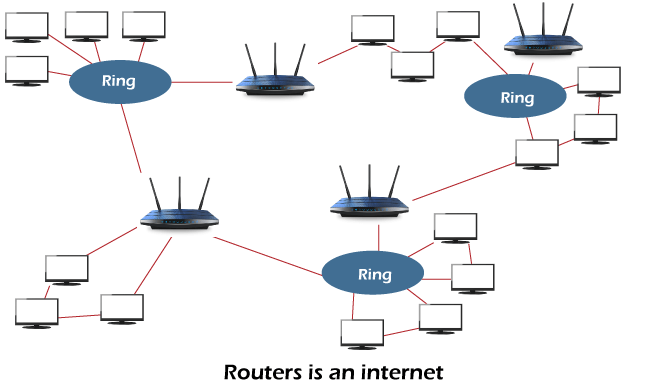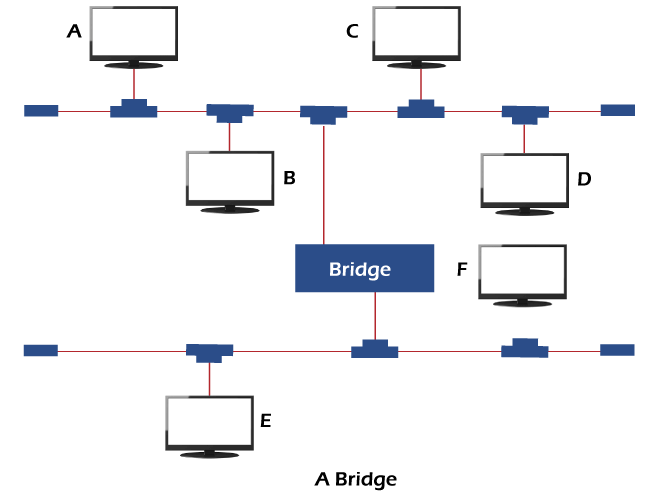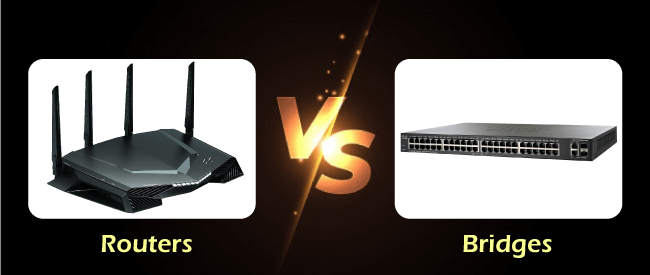Difference between Router and BridgeIn this article, we will learn the differences between Router and Bridge networking devices in detail. Router:It is an interconnecting device that works at the physical, data link and network layer of OSI reference model. It may connect LAN and WAN in the network and can pass or relay the packets among them. It has access to the network or logical address. The following figure displays the router acts as a station in the network. 
In this the routers are a member of more than one network simultaneously. They have links with two or more networks and contain the addresses of the stations on all these networks. It receives the packets from one connected network and passes them to a second connected network. If a received packet contains the address of a node that is on some other network, the Router determines which of its connected networks the best next relay point for that packet. BridgeA bridge is a networking device that works in both the physical and data link layer in a network. This devices can divide a large network into smaller segments and pass the frames between two originally separated LANs. A bridge maintains a MAC address of various stations attached to it. When a frames enters a bridge, it checks the address contained in the frame and compares it with a table of all the stations on both segments. For Example, A-frame is sent from station A to station C. When this frame arrives at the Bridge, the Bridge checks its table and blocks it from crossing into the lower segment as station C is in the upper segment only. Thus, a frame is relayed to the entire upper segment and is not allowed to move to lower segment. If the frame is to be transmitted from station A to station F, the Bridge will allow this frame to pass through it and relay it to the entire lower segment. 
Following are the point-to-point comparison between Router and Bridge. 
Next TopicIntegrated Services Digital Network
|
 For Videos Join Our Youtube Channel: Join Now
For Videos Join Our Youtube Channel: Join Now
Feedback
- Send your Feedback to [email protected]
Help Others, Please Share









